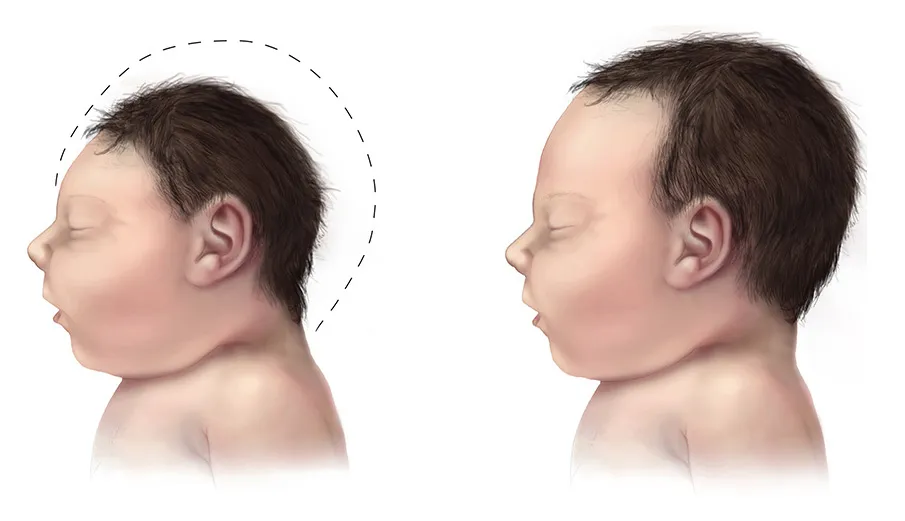For generations, societies around the globe have practiced the custom of Infant Circumcision. Despite its prevalence, the effect of this ritual on parents varies widely and holds significant importance.
This article explores the different emotional stages that parents experience before, during, and after their child’s circumcision. We intend to enhance our understanding of the emotional journey that parents undergo by shedding light on this topic.

Cultural and Personal Factors Influencing the Decision on Infant Circumcision
Many parents find that circumcising their newborn son has great cultural and personal significance. The decision carries emotional weight as it is often tied to their beliefs and cultural norms.
Cultural Beliefs
The decision is heavily influenced by cultural factors. Certain societies have a longstanding practice of circumcision that serves as part of their cultural or religious identity. For parents within these cultures, choosing not to circumcise their child will be met with disapproval.
The fear of social exclusion or judgment creates immense pressure, leading parents to opt for circumcision despite their reservations. Parents from cultures that don’t observe circumcision face challenges in deciding whether or not to have their child circumcised.
This results in a clash between their customary beliefs and adapting to their community’s customs.
Personal Views on Health Benefits
Personal beliefs also heavily influence the emotional impact of infant circumcision on parents. Circumcision holds different meanings for various parents. Those who consider it a crucial medical practice argue for its immense health advantages in adult life.
The decision to undergo circumcision instills a sense of ease and calmness, thus providing peace of mind. Alternatively, some parents may feel uncertain or uneasy when considering the medical necessity of circumcision.
Conflicting Information
Moreover, the emotional impact of infant circumcision is amplified by the conflicting opinions and information available. The decision-making process is complicated by the varying opinions presented by healthcare professionals, friends, and family.
Access to several online resources and personal stories shared through social media only adds to the complexity of emotions felt by parents.
Anticipation and Anxiety Before the Circumcision
Parents confront a difficult and complex choice when determining if their newborn should undergo circumcision. They would have checked out the procedure, talked with medical practitioners, and considered both the benefits and risks of the operation.
Even with complete access to the necessary data, there’s still a sense of apprehension and worry. Conflicting emotions may trouble parents as they ponder whether their choice is the right one that will promote their child’s well-being.
They may feel various emotions, including guilt, worry, and sadness, as they grapple with the choice to alter their child’s body.
Fear of Pain
One of the primary sources of anxiety is the fear of pain that their baby may experience during and after the circumcision. Parents visualize the struggle and discomfort when their little one is forced into any form of pain.
Moreover, the concept of the procedure and the likelihood of their vulnerable infant experiencing severe distress can heighten the anxieties and tensions felt by parents.
Guilt Feelings
Additionally, parents may experience guilt. They speculate if they are causing unnecessary harm to their infant.
Worry about Logistics
The anticipation of the procedure itself can be anxiety-inducing. Parents worry about the logistics, such as finding a competent healthcare professional or a safe and sterile environment. The thought of their tiny, vulnerable baby undergoing a surgical procedure can be overwhelming and emotionally challenging.
Emotional Reactions During the Circumcision
As the circumcision takes place, parents are frequently present, either in the vicinity or in the same room. Observing their newborn in pain and feeling helpless can be profoundly unsettling for parents, intensifying their emotional anguish.
For some parents, there is anxiety and worry about the pain and discomfort their baby will endure. Seeing their child undergo surgery is distressing. They feel guilty for subjecting their child to pain.
The inability to protect one’s child from pain can lead to feelings of helplessness, causing emotions such as guilt and self-blame.
Emotional Impacts Beyond the Circumcision
Following circumcision, parents experience emotional impacts that extend beyond the actual procedure. Some feel a sense of relief that the operation is over. Others feel sadness or grief over their child’s loss of an intact body, causing them to question their decision.
In addition, infant circumcision has a profound emotional influence on parent-child relationships. The parents’ sense of violating the child’s bodily independence results in feelings of remorse.
Post-Circumcision Reactions and Emotional Adjustment
The emotional responses and adaptations of parents after circumcision differ. The following explanations can shed light on the complex emotional landscape surrounding this controversial procedure.
Circumcision is a parental decision that’s based on cultural or religious beliefs, prompting a feeling of pride and connection to one’s heritage. This evokes strong emotions, fostering positivity, as it’s regarded as a meaningful way to honor age-old customs.
Parents feel a sense of gratification and relief since their infant has successfully fulfilled religious obligations by undergoing the procedure.
However, certain parents face an emotional battle. They experience feelings of regret and begin questioning their decision. Seeing their child’s discomfort can elicit numerous emotions, such as helplessness, sadness, and anxiety.
Additionally, some parents feel a sense of loss or grief after circumcision. It stirs feelings of sorrow to see their infant’s body modified from its natural form. Ethical dilemmas and the growing awareness of the risks and complications of the procedure intensify the emotions
Psychological Effects on Parent-Child Bonding
Parental emotions and their bonding with the child must not be ignored while discussing circumcision, despite the focus on the infant’s well-being.
Healthcare providers manage the emotional consequences of infant circumcision for parents. Counseling and support before the procedure can help them make informed decisions. After the operation, they can get help through therapy sessions or access to mental health services.
Post-circumcision therapy for mental health can aid parents in facing their feelings and treating any potential impacts on their parent-child relationship.
Coping Strategies and Support Systems
Coping with the emotional impact of infant circumcision requires support and understanding. The following strategies can help parents feel less alone in their journey.
Discuss with Family and Friends
Confronted with a difficult decision, moms can openly talk without judgment to their partners, friends, or family members. Productive discussions and bringing up concerns can lift emotional burdens and provide an outlet for handling parents’ sentiments.
Join Online or Focused Groups
Parents can seek support through online communities or focused group discussions. In these groups, parents share their experiences with others who have faced similar circumstances. These avenues provide validation, guidance, and empathy.
Work with Family Health Therapists
Parents seek assistance from professionals specializing in reproductive and family health, such as therapists or counselors. They create a secure and encouraging atmosphere to allow parents to examine their feelings, and address any unresolved trauma.
Self-Coping Strategies
The handling of infant circumcision’s emotional impacts is a subjective process, as every parent has a distinct experience. Hence, there isn’t a standard solution that fits all.
Some parents augment their knowledge about circumcision and its probable outcomes, which may help them relax. On the other hand, some benefit from personal practices like meditating, working out, or writing in a diary to foster self-love and kindness.
Challenging the Status Quo: Alternative Options and Dialogue
A growing trend among parents is to explore alternative methods when considering circumcision. A wait-and-watch strategy has gained popularity. It chooses to postpone the procedure until the child is capable of making an educated decision.
The wait-and-watch strategy empowers children to exercise control over their physical selves and make informed choices. This approach advocates for children’s independence, granting them the freedom to make decisions about their lives.
Additionally, through open communication and a deviation from the traditional approach, we can help parents manage the emotional aspect of infant circumcision. Healthcare professionals offer unbiased information and respect parents’ decisions.
The discussion around circumcision should prioritize the emotional well-being of parents, as their thoughts and experiences carry equal weight with the procedure’s physical aspects.

Give Emotional Support to Parents
The decision to circumcise an infant can have a profound impact on parents, evoking complex and varied emotions that span the course from pre- to post-procedure.
Whether grappling with anxiety and guilt or finding relief and satisfaction, comprehending the varied emotions at play empowers healthcare providers, policymakers, and society as a whole to better support parents navigating this important decision.
To establish a nurturing atmosphere for parents going through the delicate phase of infant circumcision, we at Omega Pediatrics encourage open communication and respect parents’ choices. Through dialogue with family members, parents can better manage their emotions.
We at Omega Pediatrics take pride in our expertise in child healthcare. We manage infant circumcision in its multifaceted nature for your child as well as their parents. We take time and effort to educate parents and answer all their doubts and questions about circumcision.
We at Omega Pediatrics fully recognize and confront this challenge. We don’t only focus on the infant’s health and well-being; rather, we also ensure the emotional journey the parents are navigating through.




